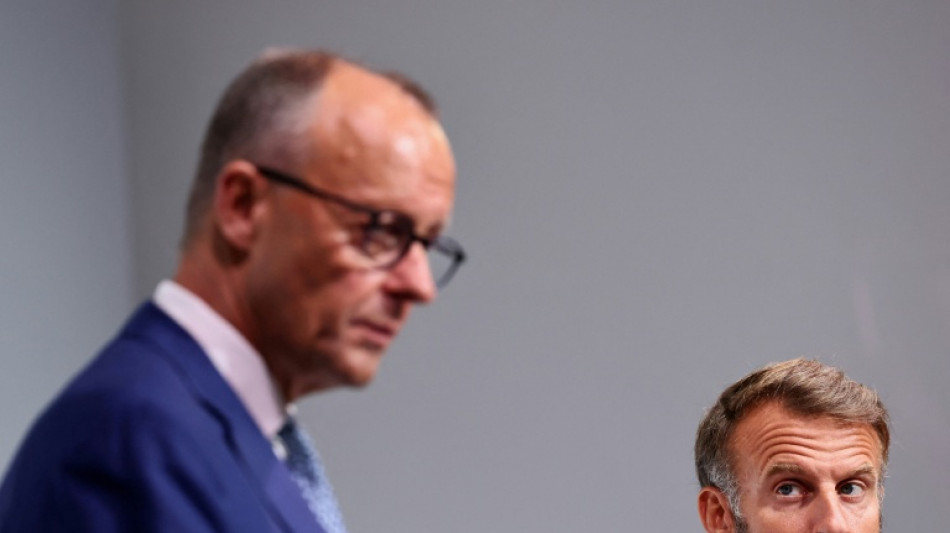
France, Germany up pressure on Putin over Ukraine-Russia talks

France and Germany on Friday vowed to step up pressure on Russia over its war against Ukraine, threatening further sanctions if President Vladimir Putin failed to turn up for talks with Ukraine's leader.
French President Emmanuel Macron said that Putin would have "played" US President Donald Trump if the Russian leader failed to fulfil a pledge to meet Ukrainian leader Volodymyr Zelensky.
German Chancellor Friedrich Merz added that Putin seemed "unwilling" to hold such a meeting and that Russia's three-year invasion looked like it would last "many more months".
The White House later said that Trump was still working with both sides to end the war.
Trump moved to restore dialogue with Moscow at the start of his second presidency, but diplomatic efforts to end the conflict sparked by Russia's February 2022 invasion of its neighbour appear to have lost momentum.
The French and German leaders agreed to send additional air-defence hardware to Ukraine following a Russian attack on Kyiv that killed 25 people on Thursday, and to open a strategic dialogue about nuclear deterrence.
- 'Authoritarian path' -
Macron expressed hope that a Putin-Zelensky meeting would take place.
But, he added, if the Russian leader did not meet a Monday deadline to agree to the talks "it will show again President Putin has played President Trump.
"I think this is not a good thing for us all. This cannot stay without response," said Macron.
"I hope it (the meeting between Putin and Zelensky) takes place but if not... we will push for primary and secondary sanctions which will pressure Russia and force it to come to the negotiating table," he added.
White House Deputy Chief of Staff Stephen Miller said it was "absurd" to suggest Trump was being played.
He told reporters Trump was "working steadfastly to end the killing, and that's something that everybody in the world should celebrate".
- Macron 'ogre' slur -
Macron meanwhile also expressed no regret for describing Putin earlier this month as an "ogre at our gates", comments that angered Moscow.
"We say there is an ogre at the gates of Europe... this is very much what the Georgians (after a 2008 invasion) and Ukrainians and many other nations feel very deeply," he said.
"That is a man who has decided to go down an authoritarian path and impose imperialism to change international frontiers."
After deadly drone and missile attacks on Kyiv on Thursday, Macron also said "the gap between President Putin's positions at international summits and the reality on the ground shows how insincere he is."
Merz said that Russia's war against Ukraine could yet go on for "many more months", adding that he had "no illusions" about the prospects of a swift conclusion.
He vowed: "We will not abandon Ukraine," but said it looked like Putin was showing "no readiness" to meet with Zelensky.
"To be frank that does not surprise me as this is part of this Russian president's strategy," the German chancellor added.
- Air defence for Ukraine -
The two leaders' meeting in the southern French port city of Toulon came after Russian missiles and drones ripped through apartment blocks in Kyiv on Thursday, the deadliest attack on the capital in months.
Zelensky said Friday in a post on social media that the 25 people killed in that barrage included four children. Dozens more had been wounded.
"An absolutely vile strike that shows Putin's true intentions – to continue killing, not to take steps toward peace," he added.
In Toulon, Macron and Merz issued a joint statement on fresh support.
"France and Germany will provide additional air defence to Ukraine," they said.
The two countries added that France -- the EU's only nuclear-armed power -- and Germany are to open a "strategic dialogue" over nuclear deterrence in light of shared security challenges.
The two countries noted that nuclear deterrence was a "cornerstone" of NATO security.
burs-rlp/gv
T.Allen--TNT